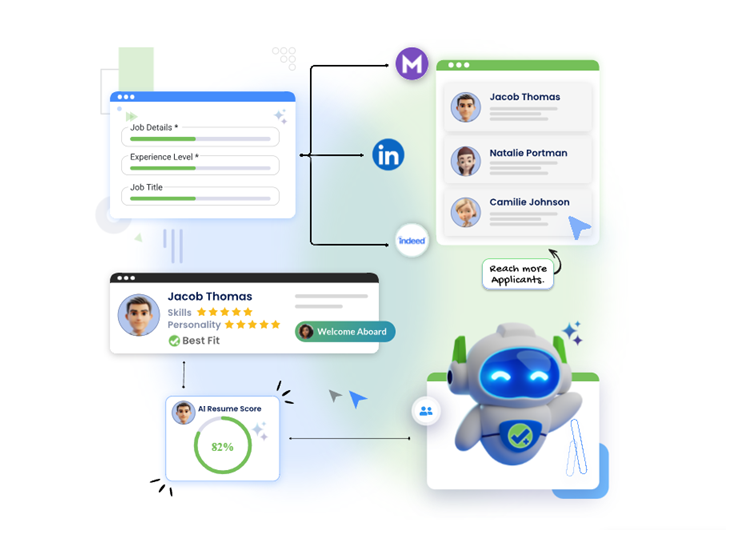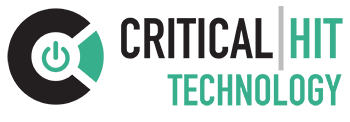
Finding the right talent is one of the most critical and challenging tasks for any organization. Hiring the wrong person can cost thousands of dollars, reduce team productivity, and even impact company culture. Traditional recruitment methods—relying heavily on resumes, cover letters, and subjective interviews—often fall short in predicting candidate success. Fortunately, artificial intelligence (AI) is reshaping the hiring landscape, offering data-driven solutions that help organizations identify the best talent faster and more accurately.
The Limitations of Traditional Hiring
Conventional hiring practices are often prone to error. Recruiters must sift through large volumes of resumes, screen candidates manually, and rely on subjective impressions during interviews. These methods are time-consuming and may lead to mis-hires. Research suggests that nearly three out of four small business employers have hired the wrong person at some point, highlighting the inefficiency of traditional approaches.
Mis-hires not only increase costs—sometimes by three to five times the employee’s salary—but also affect productivity and team morale. Over-reliance on historical experience or personal intuition often leaves organizations guessing whether a candidate will truly succeed in their role.
How AI Enhances Recruitment
AI technology addresses the shortcomings of traditional hiring by introducing objectivity and predictive capabilities. AI-powered recruitment platforms analyze candidates using a combination of skills, experience, education, and personality traits. This approach goes beyond what a resume can show, helping recruiters make decisions based on data rather than assumptions.
Predictive analytics in AI allows organizations to identify high-potential candidates before making an offer. By examining behavioral patterns, work history, and competency alignment, AI can suggest which applicants are most likely to thrive in a role. This not only reduces turnover but also ensures a better match between employees and their job responsibilities.
Automating the Hiring Process
Another major advantage of AI in recruitment is automation. From posting jobs on multiple boards to screening and ranking applicants, AI significantly reduces administrative workload. Job postings can reach hundreds of platforms and social media channels automatically, maximizing exposure and attracting more qualified candidates.
AI also streamlines the evaluation process. Instead of manually reviewing hundreds of applications, recruiters receive ranked lists of top candidates, complete with data-driven insights. This allows hiring teams to focus on strategic decisions and meaningful interviews rather than tedious administrative tasks.
Predicting Cultural Fit and Long-Term Success
Hiring is not just about skills; it’s also about ensuring the right cultural fit. AI platforms evaluate personality traits, work habits, and behavioral tendencies to determine how well a candidate will integrate into the company culture. This helps build cohesive, high-performing teams and reduces the likelihood of employee dissatisfaction.
Furthermore, AI tools can help organizations identify employees with leadership potential. By analyzing performance metrics and personality indicators, AI can predict which employees are likely to succeed in managerial or leadership roles, enabling proactive succession planning.
SmoothHiring: AI in Action
SmoothHiring is an AI-driven recruitment platform that demonstrates the practical benefits of predictive hiring. Using proprietary algorithms, SmoothHiring matches candidates to roles based on a combination of skills, experience, and personality traits. Organizations using the platform have reported significant reductions in hiring costs, faster time-to-hire, and improved retention rates. By leveraging AI, SmoothHiring enables companies to make more informed, objective hiring decisions and build stronger, high-performing teams.
Promoting Fairness and Inclusivity
One of the most important advantages of AI in recruitment is its potential to reduce bias. Human decisions can be influenced by unconscious preferences or subjective judgments. AI minimizes these risks by evaluating candidates against consistent, objective criteria.
This approach not only promotes fairness but also supports diversity and inclusion efforts. By assessing applicants based on merit rather than demographic or personal characteristics, organizations can create a more equitable hiring process while still identifying the candidates best suited for the role.
The Future of AI in Hiring
AI in recruitment is continually evolving. With advancements in machine learning and natural language processing, hiring platforms are becoming smarter, faster, and more precise. Future tools are likely to integrate even more predictive metrics, such as team dynamics, emotional intelligence, and long-term performance indicators.
Organizations that embrace AI in hiring are positioning themselves to stay competitive in the talent market. Data-driven hiring not only reduces costs and increases efficiency but also ensures organizations attract and retain the best talent available.
The integration of AI technology in recruitment marks a significant shift from subjective, traditional hiring practices to a more scientific and data-driven approach. Predictive analytics, automated processes, and objective assessments empower organizations to hire better, faster, and more accurately.
Platforms like SmoothHiring showcase how AI can enhance hiring outcomes by identifying top talent, predicting success, and streamlining recruitment workflows. By embracing AI, businesses can build high-performing teams, reduce turnover, and ensure a stronger cultural fit—ultimately driving growth, innovation, and long-term success.





















